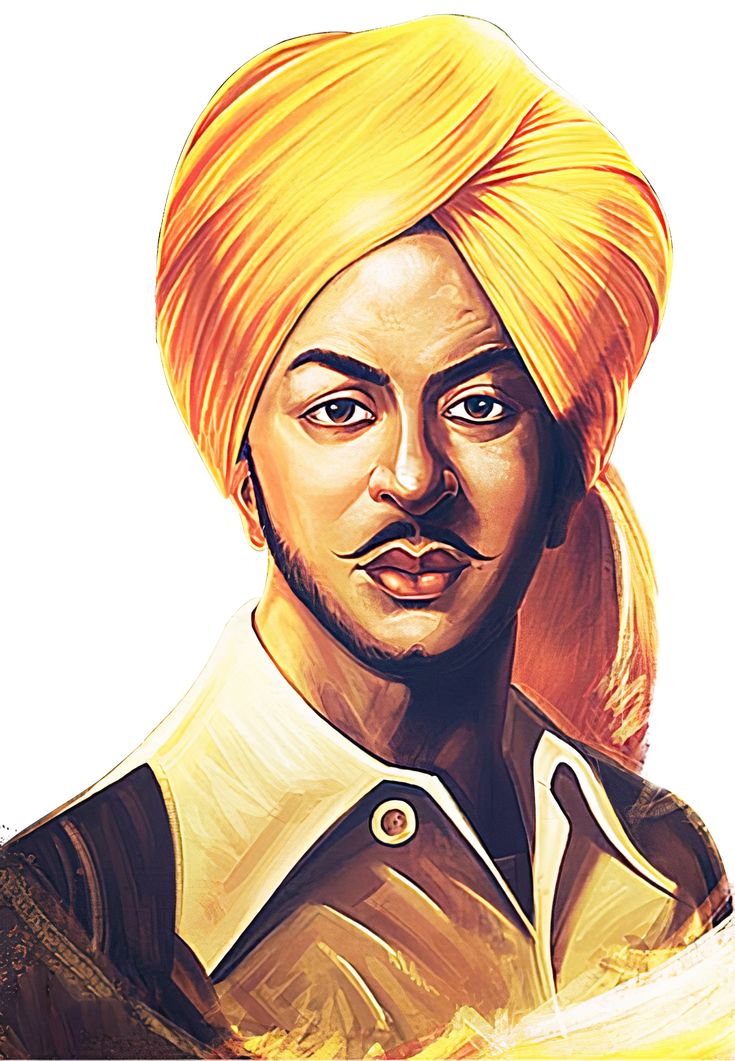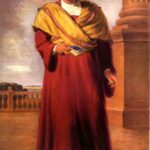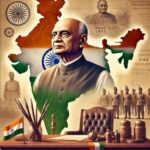Bhagat Singh: The Fearless Revolutionary Who Inspired India’s Freedom Struggle
Bhagat Singh (1907–1931) remains one of the most iconic figures in India’s fight for independence. A revolutionary and a martyr, his life epitomized courage, patriotism, and the unyielding spirit to challenge injustice. Known for his radical approach to freedom, Bhagat Singh inspired millions to join the struggle against British rule.
Early Life and Influences
He was born on September 28, 1907, in Banga, Punjab (now in Pakistan), into a patriotic Sikh family. His family had a history of participation in the freedom movement, which deeply influenced him from an early age.
- He grew up hearing stories of bravery and resistance from his father and uncles.
- The Jallianwala Bagh massacre of 1919 left a profound impact on the young Bhagat Singh, fueling his desire to fight against colonial oppression.
Bhagat Singh was a voracious reader, with a keen interest in history, philosophy, and politics. He was inspired by revolutionaries like Kartar Singh Sarabha and global leaders like Karl Marx and Lenin.
Path to Revolutionary Activism
1. Joining the Hindustan Socialist Republican Association (HSRA)
Bhagat Singh became a part of the HSRA, a group of young revolutionaries committed to armed struggle against British rule. The HSRA believed that independence could be achieved through direct action and inspiring the masses.
2. The Simon Commission Protest
In 1928, during protests against the Simon Commission, British police brutally lathi-charged Indian demonstrators, resulting in the death of Lala Lajpat Rai, a respected leader.
- Bhagat Singh, deeply angered, vowed to avenge Rai’s death.
- He and his associates, Rajguru and Sukhdev, planned and executed the assassination of British officer J.P. Saunders, who was responsible for the attack on Rai.
3. The Central Assembly Bombing (1929)
Bhagat Singh, along with Batukeshwar Dutt, threw harmless bombs in the Central Legislative Assembly in Delhi to protest oppressive laws.
- The act was symbolic, aiming to “make the deaf hear” and awaken the public to the cause of independence.
- After the bombing, they voluntarily courted arrest, using the courtroom as a platform to voice their revolutionary ideas.
Philosophy and Ideals
His ideology extended beyond mere independence from British rule. He envisioned an India free from poverty, exploitation, and social inequality.
- Socialism and Equality: Influenced by Marxist thought, he advocated for a classless society and economic justice.
- Secularism: Bhagat Singh believed in unity beyond religious lines, opposing communal divisions.
- Self-Sacrifice: He believed that personal sacrifice was essential to inspire mass participation in the freedom movement.
His famous writings, including Why I Am an Atheist, showcased his rational and fearless mindset.
Trial and Execution
His trial became a national spectacle, with the British government determined to make an example of him. Despite intense public support and appeals for clemency, Bhagat Singh, Rajguru, and Sukhdev were sentenced to death.
- On March 23, 1931, at the young age of 23, Bhagat Singh and his comrades were hanged in Lahore Jail.
- His execution provoked widespread outrage and turned him into a martyr for India’s freedom.
Legacy and Impact
1. Inspiration for the Freedom Movement
Bhagat Singh’s revolutionary ideas and ultimate sacrifice ignited the spirit of nationalism in countless Indians. His life demonstrated that young people could play a pivotal role in the fight for justice.
2. Shift in the Freedom Struggle
His radical methods brought attention to the need for bold actions and instilled fear in the British administration. While nonviolent resistance led by Mahatma Gandhi was the dominant approach, Bhagat Singh’s tactics appealed to a section of Indians who sought immediate action.
3. Symbol of Youth Empowerment
Even today, Bhagat Singh remains a symbol of the power of youth to challenge injustice. His life is a reminder of the importance of courage, conviction, and standing up for one’s beliefs.
Observance and Celebrations
- Shaheed Diwas (Martyrs’ Day): March 23 is commemorated every year to honor Bhagat Singh, Rajguru, and Sukhdev.
- Birth Anniversary: September 28 is celebrated with events and tributes across India.
- Statues, museums, and schools named after him continue to keep his memory alive.
Interesting Facts
- Voracious Reader: He read extensively, even during his time in jail, on topics ranging from politics to philosophy.
- Youthful Visionary: At just 23 years old, he became one of the most influential revolutionaries of India.
- Symbolic Acts: He shaved off his beard and cut his hair to disguise himself after the assassination of J.P. Saunders, defying his Sikh traditions.
- Writer and Thinker: His writings revealed his deep understanding of socialism, atheism, and revolution.
- Global Inspiration: He drew inspiration from international revolutionaries, including the Irish struggle for independence.
FAQs
1. What was Bhagat Singh’s most famous act of defiance?
The Central Assembly bombing in 1929, where he aimed to make the public aware of India’s plight, is one of his most famous acts.
2. Why is Bhagat Singh called a martyr?
He willingly embraced death for the cause of India’s independence, becoming a symbol of sacrifice and courage.
3. What were Bhagat Singh’s last words?
Before his execution, Bhagat Singh is believed to have said, “Down with British imperialism.”
Significance in Modern Society
His life and ideals are still relevant today:
- Youth Empowerment: His dedication inspires young people to work for societal change.
- Social Justice: His vision of equality and fairness resonates in contemporary struggles against discrimination.
- Courage to Stand Against Injustice: Bhagat Singh’s story encourages individuals to speak out fearlessly against oppression.
Wishing Legacy Forward
Honoring Bhagat Singh means embracing his values of courage, selflessness, and the relentless pursuit of justice. His sacrifice is a reminder that the fight for freedom and equality is ongoing and requires constant vigilance.
Final Thoughts
His short but impactful life is a testament to the power of conviction and the spirit of revolution. His legacy continues to inspire millions to dream of a better, freer world.










